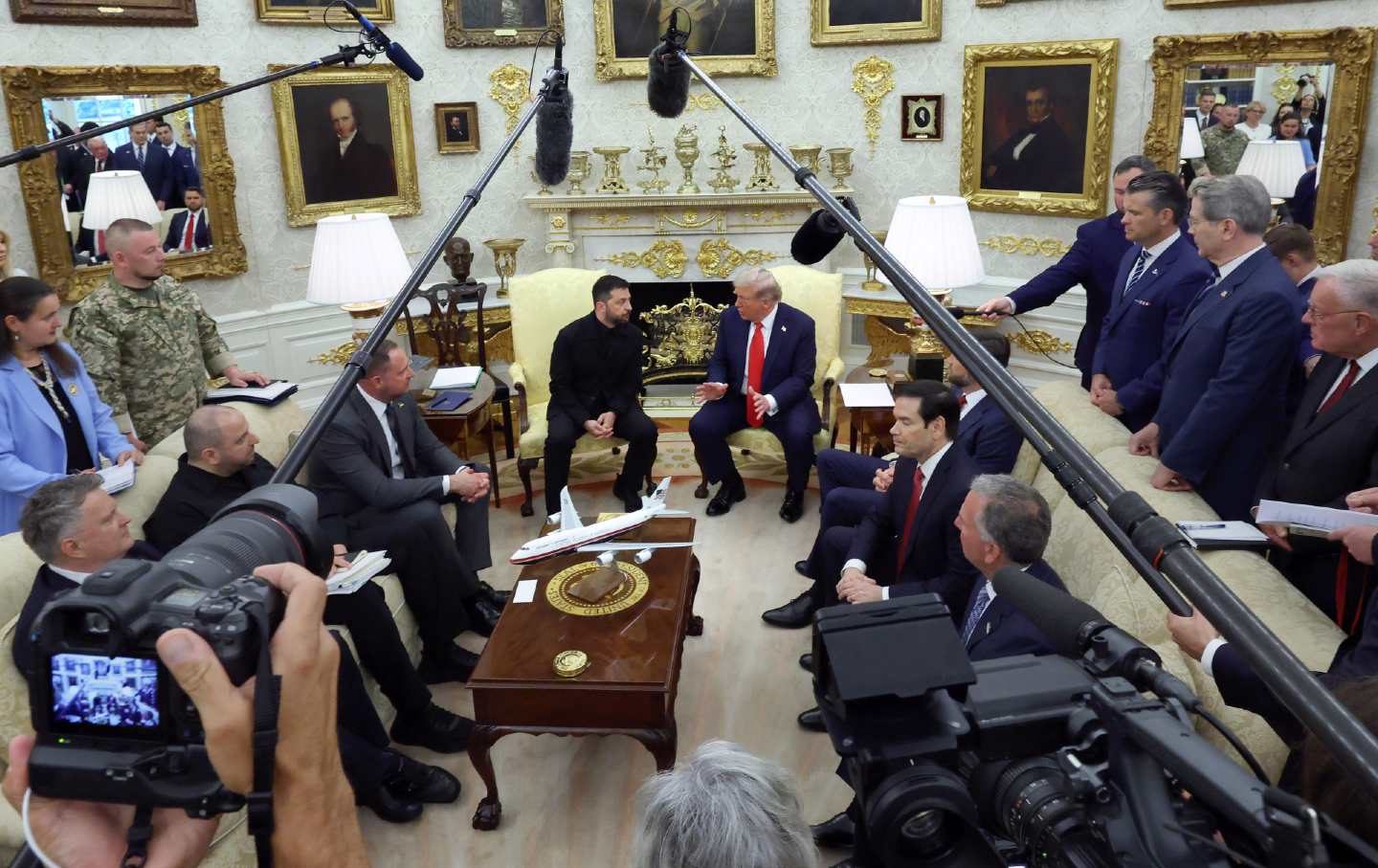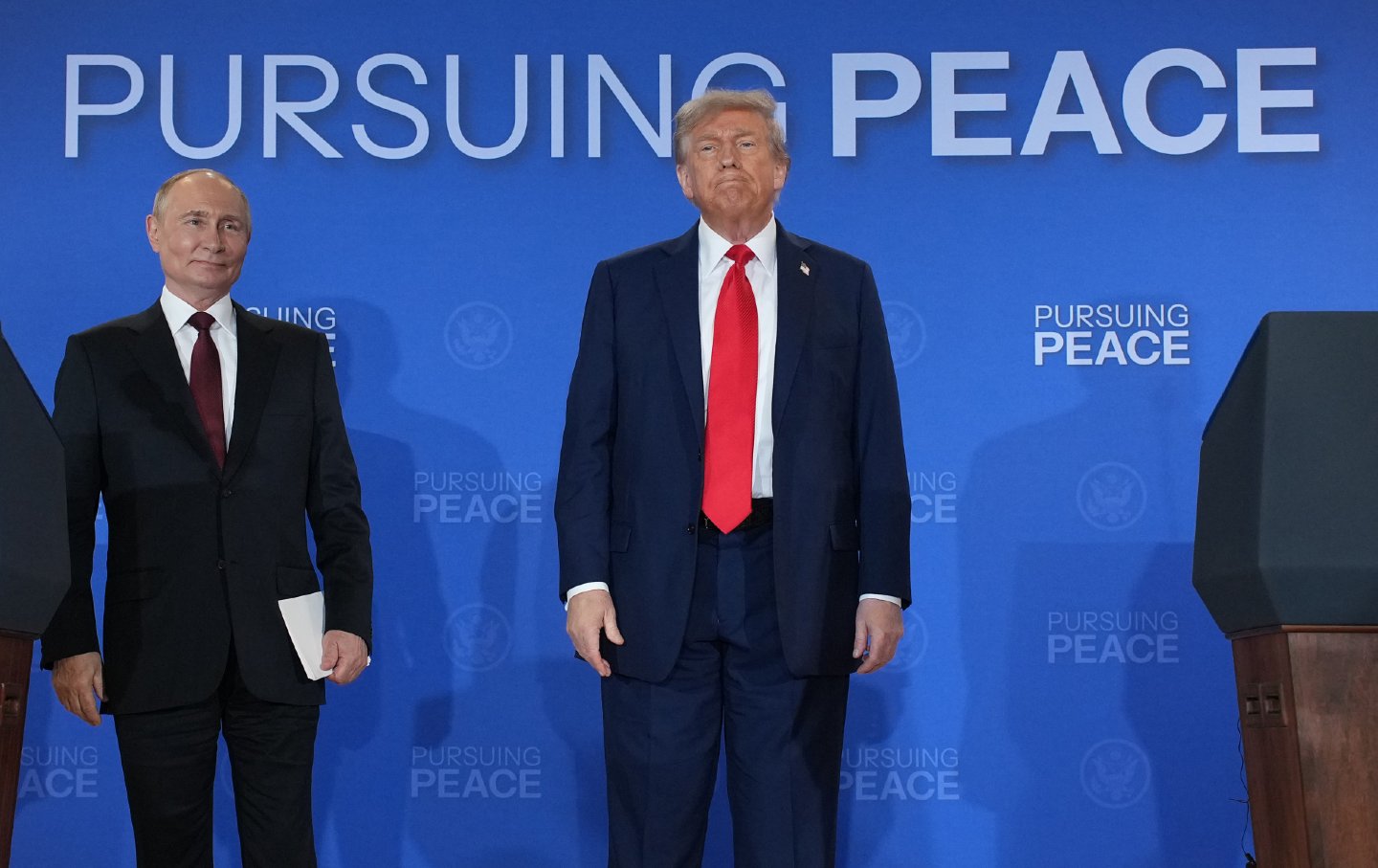Over the past decade, the geopolitical landscape shifted beneath the feet of the United States. The end of the Cold War, the unipolar moment in which the US was the unquestioned hegemon of the world, is over. Thirty years later, that moment is a distant memory, as the dollar steadily declines as a share of global currency reserves, traditional US allies forge trade agreements with US adversaries, and a rising Global South seeks new rules for trade, development, and security.
To be sure, the bipartisan US political establishment aided and abetted the demise of the unipolar moment with reckless policies such as launching an unwinnable war in Afghanistan and an endless war in Iraq and engaging in irresponsible fiscal policies that have raised the US national debt by 520 percent since 2000, culminating with the 2008 financial crises. It is no wonder that now, as the US is intensely involved in fending off Russia’s war of aggression against Ukraine alongside allies in Europe, middle powers such as Saudi Arabia, South Africa, Turkey, and Egypt collectively shrug.
Meanwhile, despite a US-led sanctions regime, countries like India and China continue to do business with Russia and refrain from reprimanding Moscow. Unfortunately, although not unexpectedly, many countries in the Global South believe it is the height of hypocrisy for the United States to criticize Russia for launching a reckless invasion when Washington has recently engaged in similar military adventurism.
Global powers like Russia and China aren’t the only countries seeking to defend their spheres of influence, warned former State Department and National Security Council staffer Fiona Hill in a speech in May:
Other countries that have traditionally been considered “middle powers” or “swing states”—the so-called “Rest” of the world—seek to cut the US down to a different size and exert more influence in global affairs. They want to decide, not be told what’s in their interest. In short, in 2023, we hear a resounding no to US domination and see a marked appetite for a world without a hegemon.
It is in this paradigm that the US needs to digest some hard truths. First, Washington cannot continue to mischaracterize all its interventions or involvement in conflicts as defending the “rules-based order.” For example, the Trump administration went against international law by recognizing Israel’s annexation of the Golan Heights and unilaterally withdrew from the Security Council–endorsed Iran nuclear agreement.
The Obama administration intervened in Libya and Syria and George W. Bush invaded Iraq, all without the support of the United Nations. To many countries, the United States follows the “rule for thee but not for me” as it continues to pick and choose which conflicts it frames as ones that violate “the rules-based order” and which do not.
Washington must accept that friends and allies will often go their own way if their interests are not aligned with America’s on the world stage. Saudi Arabia and Iran squashed their decade-long estrangement with the help of Chinese mediation. Many Persian Gulf Arab states who rely on Washington’s security guarantee are actively trading in Russian oil in seeming indifference to the United States. India, whom the US counts on to balance China in the “Indo-Pacific,” increased its energy and arms purchases from Moscow since the war began. Brazil, Argentina, South Africa, and other BRICS countries are actively looking to trade with each other in currencies that are not US-dollar-denominated.
Indeed, incentives for breaking from Washington’s “rules” have been made higher than ever by the expansive implementation of extraterritorial sanctions as a central tenet of US statecraft. Forty percent of global oil reserves are under US sanctions, creating enormous pressure on oil producers and buyers to shift to non-dollar oil sales.
In 2001, the dollar accounted for 73 percent of global currency reserves. This year, it is 58 percent, a 15 percent reduction.
The problems don’t end with de-dollarization. US commitments to its own bilateral agreements and geopolitical stability are coming under scrutiny as calls grow in Washington to end US “strategic ambiguity” regarding the defense of Taiwan against potential Chinese aggression. Then–House Speaker Nancy Pelosi’s trip to Taiwan on a US Air Force plane last summer incited China to conduct aggressive naval maneuvers in the South China Sea. It also raised concerns about US commitments to the five-decades-old Shanghai Communique and the “one China policy,” the foundation of US-China relations since 1972.
These provocations are coupled with calls for economic “decoupling” from China. Beijing is Washington’s single largest trading partner and both parties have largely favored engagement with China over the past five decades, leading to Beijing’s permanent membership on the UN Security Council as well as ascension to the WTO.
A “decoupling” between the two largest economies in the world in favor of zero-sum military competition, an about-face in US policy, poses severe consequences for both the United States and China. For the rest of the world, bifurcating the globe into competing blocks with different standards of trade, and technology, engaging in frenetic competition potentially leading to a military confrontation, is an outcome to be avoided.
Some in Washington may want the US to continue conducting business as usual even as much of the world chooses to stand on the sidelines of the Russia-Ukraine war, steadily de-dollarize their economies, and no longer view the US, or the institutions it has helped birth, such as the UN, as sources of legitimate rules. But this is an act of futility with disastrous repercussions on Washington and the global community.
Climate change, a war in Ukraine, and emerging technologies like artificial intelligence all pose global threats. But the United States is still a global leader. It should advocate for true multilateral burden sharing through existing and new institutions and agreements. The US could stop “policing” the world order as it sees fit, and become a vital participant in convening countries to solve humanity’s most vexing problems.
The “rules-based international order” is in irreversible free fall. Accepting that fact and leading the drive for a new, more inclusive and imaginative, political and economic order is a task the United States could be well positioned to embrace.
Take a stand against Trump and support The Nation!
In this moment of crisis, we need a unified, progressive opposition to Donald Trump.
We’re starting to see one take shape in the streets and at ballot boxes across the country: from New York City mayoral candidate Zohran Mamdani’s campaign focused on affordability, to communities protecting their neighbors from ICE, to the senators opposing arms shipments to Israel.
The Democratic Party has an urgent choice to make: Will it embrace a politics that is principled and popular, or will it continue to insist on losing elections with the out-of-touch elites and consultants that got us here?
At The Nation, we know which side we’re on. Every day, we make the case for a more democratic and equal world by championing progressive leaders, lifting up movements fighting for justice, and exposing the oligarchs and corporations profiting at the expense of us all. Our independent journalism informs and empowers progressives across the country and helps bring this politics to new readers ready to join the fight.
We need your help to continue this work. Will you donate to support The Nation’s independent journalism? Every contribution goes to our award-winning reporting, analysis, and commentary.
Thank you for helping us take on Trump and build the just society we know is possible.
Sincerely,
Bhaskar Sunkara
President, The Nation








